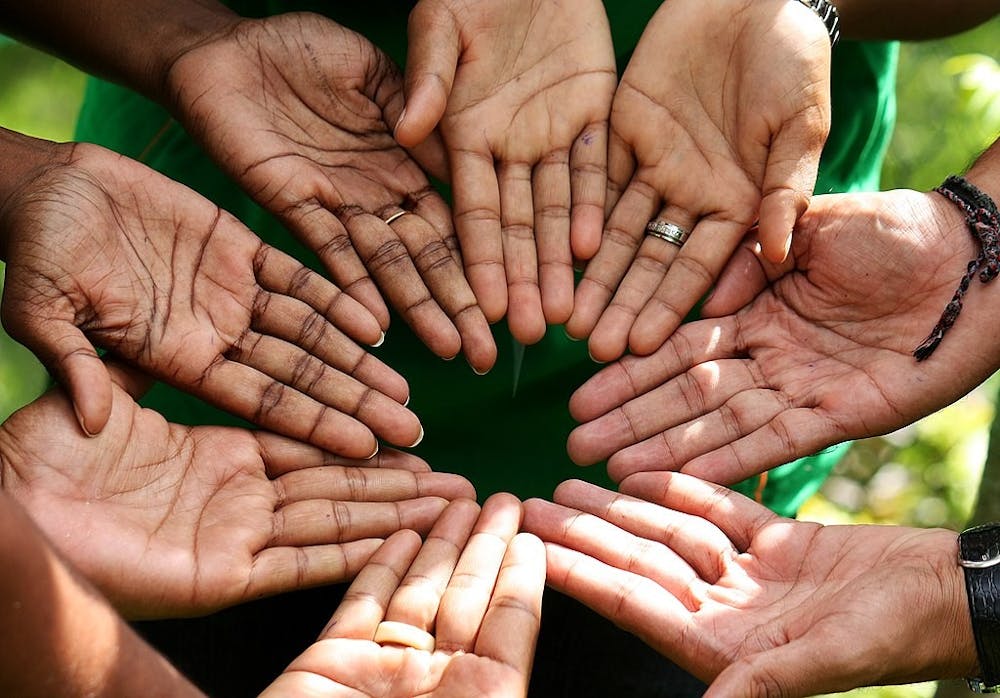As coronavirus (COVID-19) ravages the globe, and thousands of human beings die from the harrowing infection, modern life has experienced an abrupt upending. Over the last several weeks, we have seen countless businesses, schools — including Princeton — and even parts of entire major cities become vacant across the globe.
With the risk of drawing an outrageous false equivalency, I, like many others, keep fearfully comparing the current pandemic we are facing to HIV/AIDS.
Approximately 37 million people worldwide have died of AIDS-related complications since the late 1970s. Nearly 675,000 Americans have died of the disease as of 2016; a staggeringly disproportionate 330,000, at least, were gay and bisexual men.
It is hard to overstate the cataclysmic, murderous havoc AIDS wrecked upon gay Americans. By 1995, AIDS had killed one in 15 gay men living in the United States, including one in 10 gay male baby boomers; and one in nine American gay men overall had been diagnosed with the deadly illness. In many urban locales, AIDS was the chief killer of young people. For example, 61 percent of all the young men who passed away in San Francisco in 1990 died of AIDS.
If anything, the AIDS crisis has demonstrated the dire need for empathy and community care amid the current global medical emergency.
Along with those who brazenly refuse to take any precautions to protect themselves or others, I have heard far too many people heartlessly dismiss the seriousness of the coronavirus because of the (somewhat-misleading) observation that the infection disproportionally impacts older, immunocompromised people. To some, the elderly are, at least in the abstract, disposable — “they’re going to die soon anyway.”
Compounding this ageism, from the President of the United States to members of our own University community, the disease has been framed as a product of Chinese culture, leading to a racist stigmatization of Asian-Americans and the further dismissal of the virus.
On one level, coronavirus-era apathy toward the elderly and other disproportionately affected groups continues the systematic, tragic ageism long present in American culture. This ageism alone is inherently dangerous and cruel. As Louise Aronson, who teaches medicine at the University of California, San Francisco, wrote in an extraordinary New York Times op-ed on this very subject, “When we look at people as nothing more than amalgams of age and diagnosis, we miss their humanity.”

These crass dismissals also go beyond ageism, applying a frightening logic that contains hints of the homophobic trivialization of AIDS — a trivialization that caused widespread agony and mass death.
At the start of the HIV/AIDS epidemic in the United States, in the early 1980s, AIDS patients were some of the most disposable people in American life. In the homophobic American imagination, the AIDS patient was a “promiscuous,” hypersexual gay (or bisexual) man who lived in a secluded urban enclave away from sexually civilized, suburbanized, heterosexual life.
The AIDS patient — by having gay sex, by the very fact of being queer, by their very courage to live an authentic life — was, to heteronormative America, asking for it. The fact that the condom broke was less important than the repulsive idea that a queer person would need a condom in the first place.
This homophobic repulsion, accompanied by institutionalized, broad-based apathy, led to an atrociously inadequate public-health response at the start of the crisis and the dehumanization of those stricken with the illness. Throughout the 1980s especially, neither the White House nor the everyday American felt compelled to genuinely care about AIDS.

Imagine holding your lover in your arms at night, knowing full well that, in six months, there was a significant chance you’d both be dead, and hardly anyone would care.
Today, the epidemic lives on, though it has become decidedly less fatal. In 2017, the Centers for Disease Control estimated that over 16 percent of gay and bisexual men in the United States — including 50 percent of gay and bisexual African-American men — will ultimately become HIV positive, based on current rates of infection.
Nonetheless, many Americans — especially those who are heterosexual and enjoy regular access to condoms, supportive family networks, and quality healthcare — continue to enjoy a substantial distance from HIV/AIDS and its victims. Worse still, some believe that HIV/AIDS is “no longer a problem” because now everyone “knows how not to get it.” By this logic, those who do get it deserve it — “that’s what happens when you bareback,” “that’s what happens when you share needles,” and so on.
Of course, the trivializing rhetoric surrounding the coronavirus is distinct from that surrounding HIV/AIDS — in terms of content, motivation, and, as of yet, destructive impact. But, while we must avoid panicking about the coronavirus, I worry that downplaying its lethality by emphasizing how the virus disproportionately threatens the lives of elderly people just sustains our society’s tradition of hierarchizing suffering — of hierarchizing whose lives merit grief, and whose lives merit dismissal.
Obviously, an elderly person is, in general, more likely to die sooner than a young person. Perhaps, then, there is something understandably comforting in knowing that only those already most vulnerable to death are at the greatest risk of death by COVID-19. Yet it is equally true that once you start degrading the severity of some people’s deaths, you can easily find yourself trivializing the loss of many others.
No one is too old — or too Asian, or too queer, or too poor, or too black, or too disabled, or too incarcerated, or too undocumented — to be worthy of life, or worthy of mourning.
Samuel Aftel is a senior from East Northport, N.Y. He can be reached at saftel@princeton.edu.








